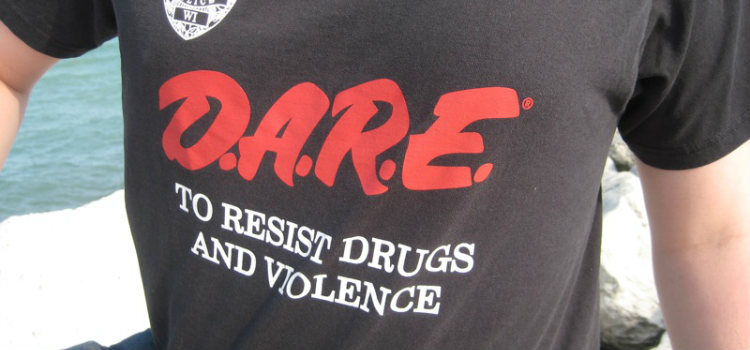Ethan Nadelmann is the founder and executive director of the Drug Policy Alliance, the leading organization in the United States promoting alternatives to the failed “War on Drugs.” He is also serves as a drug policy advisor for several prominent philanthropists and elected officials, and is arguably one of the most influential voices contributing to the global conversation about cannabis legalization. Recently, Ethan joined our host Shango Los to discuss the current state of legalization, how people can contribute to effectively change laws at the federal level, how he balances ideal outcomes against the real challenge of getting a bill passed, and more!
Listen to the full podcast below, or scroll down for the transcript.
Subscribe to the Ganjapreneur podcast on iTunes, Stitcher, SoundCloud or Google Play.
Listen to the podcast
Read the full transcript
Shango Los: Hi there, and welcome to the Ganjapreneur.com podcast. I’m your host Shango Los. The Ganjapreneur.com podcast gives us an opportunity to speak directly to entrepreneurs, cannabis growers, product developers and cannabis medicine researchers; all focused on making the most of cannabis normalization. As your host I do my best to bring you original cannabis industry ideas that will ignite your own entrepreneurial spark, and give you actionable information to improve your business strategy and improve your health, and the health of cannabis patients everywhere. Today, my guest is Ethan Nadelmann. Ethan Nadelmann is founder and Executive Director of the Drug Policy Alliance, the leading organization in the United States promoting alternatives to the war on drugs.
He received his BA, JD and PhD all from Harvard, and taught at Princeton University for seven years. He has authored two books on the internationalization of criminal law enforcement and has written extensively for academic policy and media publications. His many media appearances include the Colbert Report, the O’Reilly Factor and Real Time with Bill Maher. His TED Talk on ending the drug war has been viewed over a million times. Ethan plays a key role as Drug Policy Advisor to George Soros and other prominent philanthropists, as well as elected officials, ranging from mayors, governors and state and federal legislators in the United States, to presidents and cabinet ministers outside the US. Welcome Ethan, glad you could be in the show.
Ethan Nadelmann: It’s a pleasure, Shango.
Shango Los: Ethan, to start out, let’s get right where the heart of the matter, to the regular citizen, federal drug policy seems to have evolved behind the scenes somehow, being the result of smoke and mirrors, and deals that all happen before we even hear about what’s going on in the press. Do you think that there’s a role for an individual citizen to participate in drug policy at a federal level?
Ethan Nadelmann: Well, it depends what you mean by individual citizens. Individual citizens who’ve got a billion dollars to their name, have no problem participating in the process. When it comes to ordinary citizens who don’t have that kind of money, yes, there’s still a way to do it. I mean a lot of this just involves being highly knowledgeable about the issue and then being connected with the right networks or advocacy organizations so that you know when and where weighing-in will make that much more difference. For example, there’s about a quarter million people signed up on Drug Policy Alliance’s internet communications. What we do is let people know when a vote’s coming up and when they can contact their senator or their representative on a particular bill.
We’ll let people know how their representative voted, so that they can send him a follow-up, either to thank them or to criticize them. It’s things like that. Then of course there’s the things like just simply showing up at candidate forums, going to visit your legislator, if they’re accessible, things like calling up on talk radio; especially the ones that have contrary opinions, and offering an informed opinion. There’s always things if you’re an ordinary citizen, can do.
Shango Los: When comparing working at the federal level, versus working at the state level, we did a show recently with John Davis where we talked about going to actually sit down with your state representatives and voicing your opinion and doing so in an educated way. It sounds like doing that at the federal level, you almost need to be working within an advocacy group that acts as a force multiplier so that you can actually have some sort of impact in lieu of having a million dollars.
Ethan Nadelmann: Look, anybody can write or email or call their own member of Congress or Senator and get through that way. Anybody can drop by their representative’s office when they’re in DC, and at least talk with a staffer. If somebody has a personal relationship, or is one step removed from that Member of Congress, it always helps to use that contact, because obviously the Member of Congress is going to be that much more receptive if it comes from somebody they already know, or somebody who knows somebody they know. I’ll tell you something Shango, upcoming in a few weeks … I’m not sure if it will already happen by the time this runs, but November 18-21 in Washington, DC, is the Biennial International Drug Policy Reform Conference.
The day before that conference happens, we’re having Lobby Day, when hundreds of people who are coming to the conference will show up a day early, and then we’re arranging for them to go meet their Members of Congress, during the course of that day. That’s the sort of thing that can have a very significant impact.
Shango Los: I think it’s probably a good time for us to mention to folks too, that if they do choose to go visit their federal representatives, that they shouldn’t feel slighted, just because they’re talking to an aide, because more often than not, it’s the aides that are helping write the position papers and are coalescing the feedback; so just because you don’t speak to your specific representative, this can still be a win for whatever point you want to get across.
Ethan Nadelmann: Exactly, and it goes in there, one can always look on the website of Drug Policy Alliance or Marijuana Policy Project, or Americans for Safe Access, or NORML, and download the fact-sheets that are on our websites and use those to make sure that you have an informed opinion, and then also to give those to the staffers you’re meeting, if you actually succeed in getting a meeting with a Member of Congress, it helps to touch base with somebody at my organization. Drug Policy Alliance has the most robust lobbying operation on Capital Hill of any drug policy reform organization. We’re working in partnership with other groups. We’re very good at mobilizing state-based organizations, as well. The more coordination, typically the better.
Shango Los: The great majority of our listening audience are cannabis entrepreneurs themselves, and some of them have already established businesses, and some of them are even looking to start doing interstate commerce. Do you think that if we were to escalate my first question about being a common citizen trying to participate, let’s say instead, we’re talking about a business that’s already making money in legal marijuana and they want to ply their cash in a way that will move forward their own policy objectives. Do you think that the answer becomes any different? Do you think that it’s still ally yourself with a lobbying organization, or are there some strategies that an individual business owner with some money to spend, can do to help themselves?
Ethan Nadelmann: Shango, I say it’s a bit self-serving for me to say this, but by and large somebody who’s in the industry or wanting to get in the industry and wants to try to move, for example, federal legislation, the best way to do … Or state legislation, for that matter … Oftentimes the best way to do that, unless you have very strong and good contacts directing legislature, and even then, is to work with an advocacy organization like Drug Policy Alliance. I’ll give you one significant example. Last year, when we were working on the medical marijuana billing in New York, and we’d spent an enormous amount of resources, grassroots, grasstops mobilization, public media, behind the scenes, out front mobilizing the patient networks, meeting with almost every legislator in the state, meeting in the Governor’s office, you name it.
What we saw was a whole host of folks in the industry went out, started hiring lobbyists for five and ten and even more thousand dollars a month, and landed up as we heard, getting essentially nothing for their money. They were, basically thought, “This is the way to do it,” but it didn’t work. Meanwhile, the ones who brought it home and shaped what the legislation was, was Drug Policy Alliance. I see the same thing coming up right now with this issue of trying to change federal laws regarding the banking issue, so that folks in the industry can have access to legal banking. Once again, your best investment is to invest in Drug Policy Alliance.
I realize it sounds like a fund-raising pitch, but I think bottom line is it’s true. I should be very clear, DPA, Drug Policy Alliance, we do not lobby for the industry, but when our interests coincide with folks in the marijuana industry, which they do far more often than they don’t, the single best investment, dollar for dollar, is putting money into Drug Policy Alliance, so that we can step up our efforts on that front.
Shango Los: Given that, is there such a thing as shopping around for a lobbying organization? Obviously, people want to go with an organization that’s got proven records. How do you determine the best … choose a lobbying organization? Does the lobbying organization itself have its ideals and you just need to find one that falls with yours?
Ethan Nadelmann: It depends. Part of this is you can talk around … Look, there’s a range of organizations that we work with, with Marijuana Policy Project, the Americans for Safe Access; NORML; NCIA, the Industry Association; a range of others. One could just do your own due diligence to find out who’s doing what, or who has a reputation for being more or less successful. That’s one way to do it. The second thing is that if somebody’s looking to put any sort of real money into this … By real money, I mean, tens of thousands of dollars, or more … Then one would call the organization and say, “Look guys, here’s what I’m interested in. Here’s what affects my interest. What’s the work you’re doing on this, and what kind of work could you do with greater resources?” That’s the best way.
Shango Los: That’s great. Thanks, Ethan. We’re going to take a short break and be right back. You are listening to the Ganjapreneur.com podcast.
Welcome back, you are listening to the Ganjapreneur.com podcast. I am your host, Shango Los. Our guest this week is Drug Policy Alliance founder, Ethan Nadelmann. Ethan, everybody’s really excited about having normalization sweep across the country, and a lot of people talk, like, “Oh, will President Obama make the change and unschedule cannabis before his time is over?” What do you think the likelihood of it happening, either by congressional vote, or by the sweep of President Obama’s pen, before the end of his time in office?
Ethan Nadelmann: I think it’s scant. I think that by and large, President Obama has been much better than expected during his second term in office. During the first term, thank God, he did one very good thing … or two good things, which is basically to pull back on some of the federal enforcement on medical marijuana when he first came in. Then it bounced around for awhile, but he’s actually been pretty good in the second term. Simply giving that qualified green light to Colorado and Washington to implement their legalization initiatives and not getting in the way then, when Oregon and Alaska followed suit, and basically letting foreign governments know that they’re moving forward on marijuana decrim, or even legalization, no longer represents a challenge to US national security and political interests.
All of those have been, I think, quite good things. I think that the White House and the Justice Department have been quite good in that area, while we’ve seen a more problematic role played by the drug czar’s office and National Institute on Drug Abuse, and some of the other administrative agencies like that. I could see President Obama issuing an edict reducing marijuana scheduling from Schedule 1 to Schedule 2, but I’d be stunned if he were to use his power — and there’s disagreement about whether he actually has the power — to deschedule marijuana unilaterally.
That’s the subject of a bill which Senator Bernie Sanders introduced, I think, last week, or announced that he was going to introduce. My staff in Washington, DC, have worked closely with his staff in terms of designing that bill, but I would say that come election day or January 2017 when Obama leaves office and we have a new president and a new congress, I don’t think anything monumental is going to come out of Washington, between now and then. I think the 2016 election … Well, we’ll get to that in a minute … But that’s looking to shake up a lot, especially if most of those initiatives win then.
Shango Los: That’s the same place that I was going to go. It’s pretty astonishing to hear presidential candidates talking about cannabis at all. All the elections into my life, there may have been a mention of it by Reagan back in the day as far as the drug war goes, but to have presidential candidates actually talking about the possibilities of implementation, is really shocking. What do you think about the civil forfeiture aspect of it? We’re watching so many law enforcement agencies who have traditionally gotten paid by essentially taking possessions that were in the homes and businesses of folks that were in cannabis, and then selling that and using that to fund their organizations.
As cannabis becomes more normalized, this income is going away for these law enforcement organizations. Do you think that it’s more likely that these organizations will just shrink, or do you think that they will shift and find something new to enforce so that they can start getting asset forfeiture a different way?
Ethan Nadelmann: It’s hard to say. It’s an interesting issue you raised, Shango, because Drug Policy Alliance, we’ve been deeply involved in the issue of asset forfeiture forum. Back in the year 2000, we drafted and put on the ballot, in Oregon and Utah, two initiatives to reform asset forfeiture laws, basically to say that people could not have their properties seized and kept by the state unless they’d been criminally convicted. The second, was to say that when property was legally seized that the money had to go, not to cops and prosecutors departments, but go to the general treasury. We won both those initiatives by two to one margins, back in 2000.
Then they were somewhat gutted by the law enforcement lobby thereafter. We’ve once again reengaged on this issue in a big way … It’s got a lot of traction. We had a major victory in New Mexico earlier this year, almost eliminating civil asset forfeiture. I think that the cops are basically going to have to find new ways to fund their operations. I think that it’s not going to result in any massive layoffs. I think that this money represents an important source of revenue for some police departments. It’s coming not just from marijuana seizure, or for cash related to marijuana and property, but other stuff. I think it’s a variable. I don’t think it’s a dominant variable in the whole debate.
Shango Los: You’ve spent a lot of time consulting with all sorts of different folks, whether they be in the legislature, or philanthropists, or corporate sponsors of bills. What role do you see, have cannabis money playing a role in this upcoming presidential election? It’s certainly playing a big role as far as soundbites go, and getting the base excited, but to what degree is there cannabis money involved at this point?
Ethan Nadelmann: It really depends, Shango. The place you’re really seeing it is at the level of the states, and it’s the ballot initiatives in the legislation. You and I are talking on November 2nd, the day before Election Day, 2015. We’re all waiting to see what happens in Ohio, where there’s a ballot initiative that would legalize marijuana. If it wins, there’s a counter-initiative that would negate the legalization. It’s an initiative which is very good in a lot of respects … Which my organization helped draft … But which unfortunately includes one offensive provision; which is a provision that says, “Only the 10 investors in the ballot initiative, or the technically the properties they own, will be allowed to produce marijuana commercially, in perpetuity.”
This is the first case in Ohio where we’re seeing a ballot initiative that’s almost entirely funded by people within the industry driven primarily by their interests in making a profit, and most of whom don’t care all that much about the broader principles. You jump forward to 2016, when you’re going to have marijuana legalization on the ballot, in California and Nevada, Arizona, Maine, Massachusetts, maybe Michigan. You’re going to have medical marijuana on the ballot probably in Florida, Missouri, maybe Arkansas, and for all I know, a couple of others could pop up between now and then. 2016 is looking to be sort of the year, the marijuana year, the presidential election year where marijuana really hits it big.
If you look around the country, you’ll see that in California, there’s some money coming to the table from the industry and it’s going to be in the millions of dollars. You’ll see in Arizona, the marijuana industry playing a significant role. In Maine right now, we just were involved in getting two groups, one backed by Marijuana Policy Project, one involving local activists, to develop a unity campaign, so we didn’t have two initiatives there. What I would say, is that 2016 will probably be the last election year when marijuana initiatives were driven primarily by people who are interested in this for reasons of civil rights and civil liberties, and not primarily by their interest in making a profit.
Come 2018 and beyond, I think that the profit seekers are going to play more and more of the dominant role. The upside of that is that when it comes to putting a nail in the coffin of marijuana prohibition nationally, it means that people interested in this primarily so they can make a buck, are going to end up producing a very positive social consequence.
Shango Los: It’s really interesting to listen to the national news to see some traditional pro-cannabis activists actually coming out against the Ohio law because it is so closed off to these 10 producers. It’s very common to read these blog articles, like, “You know, I’m pro-cannabis, but this setup is not going to work,” and to hear people talking against it. How are you seeing that play out at the federal level, where people want to move normalization forward, but at the same time, there’s some really serious questions in Ohio about the framework that they’re using?
Ethan Nadelmann: I’ll tell you something, first of all Shango, I’d say people who want to get a read on this thing should read the op-ed piece I published on CNN.com a few days go. Just pop my name, Ethan Nadelmann and CNN.com and you’ll find it. I kind of lay out the pros and cons of the Ohio situation and why I’m sort of rooting for the thing to win, even though I don’t like this provision in there, and also why I think we’re not going to see a lot of states imitating that oligopoly model. Quite frankly, the people who are upset by it, are not just the traditional grassroots activists in Ohio, it’s also people in the industry.
Everybody in the industry likes to get a leg up by getting a government preference of one sort or another, but the notion of going to the point of actually writing into the State Constitution, that only the 10 investors will have the right to produce marijuana wholesale, in perpetuity, I think most folks in the industry see that it as simple overreach, and in some respects, almost un-American. I don’t think that issue is going to play out that much in Washington, DC, Capitol Hill, right now. I think there what people are looking at is, “What’s the way to allow states to experiment with their own regulatory models?”
We’re now in a time when even the Republican candidates who are open to this are saying, “Look, I’m not opposed to legalization, as a state’s right’s issue,” even if they still say they’re opposed to it on grounds of principle, or broader policy.
Shango Los: Yeah, that makes a lot of sense. When you were saying that, the phrase that kept on being in my head was, “What’s going on in Ohio seems Un-American,” and there you were, you took the words right out of my mouth. We’re going to take another short break, and be right back. You are listening to the Ganjapreneur.com podcast.
Welcome back. You are listening to the Ganjapreneur.com podcast. I am your host, Shango Los. Our guest this week is Drug Policy Alliance founder, Ethan Nadelmann. Ethan, here on Vashon Island where I live, we experienced a great deal of rural economic development during medical marijuana. We’ve had over 15 years of small mom and pop producers being able to produce a high quality, low pesticide product and move it into the dispensary market where it was then sold to patients. Now, with the passing of I-502 in our state, over the next year, all of those medical dispensaries are being phased out, the producers are going away, and the trade organization that I started here on Vashon Island, we’ve gone from 156 growers to 5 growers, and those are the 5 that have got licenses on our island.
All those other people, those are real families. The money from the sale of the medical marijuana was going to pay for kid’s field trips, and the vacation, and getting caught up on back house taxes; all of these things. Do you see there being any chance with the changes at the federal level to start to include those type of artisan simple, family growers again, or do you think the writing’s on the wall, that heavy capitalized interests are going to take over, like they did with liquor?
Ethan Nadelmann: Oh gosh, Shango it’s a great question, and I have to say, it’s the most bittersweet aspect of the advocacy I’ve been involved in, for decades now. On the one hand, we always knew that when you get to the point of full legalization of marijuana, it was going to involve something that was going to look like the alcohol, or tobacco or consumer goods companies, with major players ultimately dominating. We live in America; it’s a society of dynamic capitalist culture. It’s very hard to write in protections for the smaller growers into all of this.
Now of course we’re dealing with that reality, and especially you guys in Washington State are dealing with that reality. I don’t know much as we can do about it. That said, my organization is morally committed to doing whatever we can. What we’ve tried to do is to try to, when we have influence over the drafting of initiatives, to write in some provisions that at least lower the barriers to entry, that allow small growers to have a chance to compete, and also trying to write into these initiatives that people, whoever suffered a felony conviction because of their involvement in the marijuana industry, will not be excluded.
Those are the small things we can do. The toughest part about this in a way, is that if you think about it, there’s a coincidence of interest between the biggest players in the industry, who have the money, mostly to get their way, and the people in government who are going to be charged with regulating the new industry. From their perspective, it’s easier to regulate a small number of large entities than a large number of small entities. The third factor which makes it difficult, is that the swing voter, the voter who’s ambivalent about legalizing marijuana and who you need to persuade in order to win legalization, the swing voter will vote to legalize to the extent they see this as being about control, and about regulation.
Once again, that’s a group that’s going to prefer big over small. I’m very clear that I’d much rather see the marijuana industry evolve like a microbrewery industry or the vineyard industry. I tend to incline ideologically, as does most of Drug Policy Alliance, towards a “small is beautiful” model. We’re looking for those opportunities, but I have to say, I’m not in a position to make any commitments to anybody on this stuff, for the simple reason that I understand enough about the dynamic nature of capitalism in America.
Shango Los: While you’ve got your crystal ball out there, Ethan, what do you think is going to happen with these folks all across the country who have been set up and learned their business as medical marijuana producers, and then state by state, they are not going to be allowed to participate anymore, and thus they will more than likely either shut down or divert to the black market. Do you think that we’re going to see the DEA enforcing against folks at the local level, or do you think they’re going to keep their hands off, and any kind of an enforcement is going to be local county sheriffs?
Ethan Nadelmann: I think the DEA is going to focus primarily on the bigger players operating outside of state law. I think the DEA is probably going to be inclined to collaborate with local law enforcement in terms of people operating without a license. Now, I also think that California, I’m hoping California will offer a model that will be more attuned to the sorts of things that you and I are talking about than we’ve seen in Washington State and some other states. The other thing I would say, Shango, is I look at the history of alcohol, post-alcohol prohibition. After alcohol prohibition was repealed, tons of people who were involved in the industry, like the medical marijuana providers, growers are today, they tried to stay in, they tried to compete.
Depending upon some places in America, they kept a hand in selling alcohol illegally for a decade or two decades. Ultimately, I think many of them were pushed out, because consumers, it was easier and simpler for them to go to a licensed outlet, rather than buy from the neighbor who is making the home brew in the backyard. Then I think there’ll be a phase, once people have relaxed about these hyper controls, over supply. I think we’ll begin to see the reemergence of the small growers down the road, like we’re seeing the microbreweries and the micro-distilleries, and things like that. That’s my guess about the way it evolves, but I’m no expert in this industry, so I can’t say for sure.
Shango Los: Right on! Thank you for that, Ethan. Believe it or not, that’s all the time we have for today. Thanks for being on the show, Ethan. I’m really glad that you were able to offer us some time, especially the day before they vote in Ohio.
Ethan Nadelmann: Thank you very much, Shango, and good luck with everything on Vashon Island, and also in Washington State.
Shango Los: Thank you. Ethan Nadelmann is founder of the Drug Policy Alliance. You can find out more at DrugPolicy.org. You can find more episodes of Ganjapreneur podcasts in the podcast section at Ganjapreneur.com. You can also find us on the Cannabis Radio Network website and in the Apple iTunes Store. On the Ganjapreneur.com website, you will find the latest in cannabis news, product reviews and cannabis jobs updated daily, along with transcriptions of this podcast. You can also download the Ganjapreneur.com app in iTunes and Google Play. We’re also thrilled to announce that you can now find this show on the iHeartRadio Network app, bringing Ganjapreneur to 60-million mobile devices. Thanks, as always, to Brasco for producing our show. I am your host, Shango Los.
Photo Credits: Gabriel de Paiva (portrait) and Gage Skidmore (event photo)




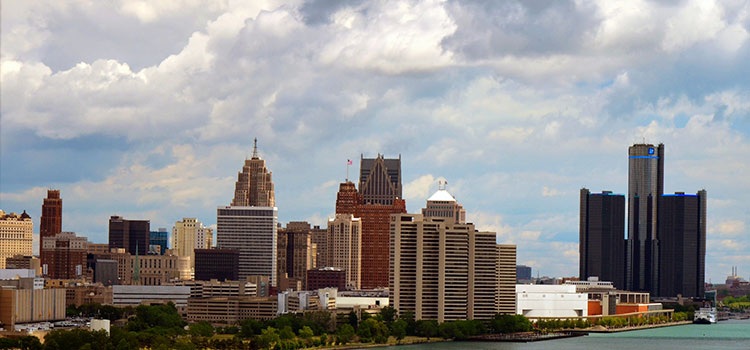

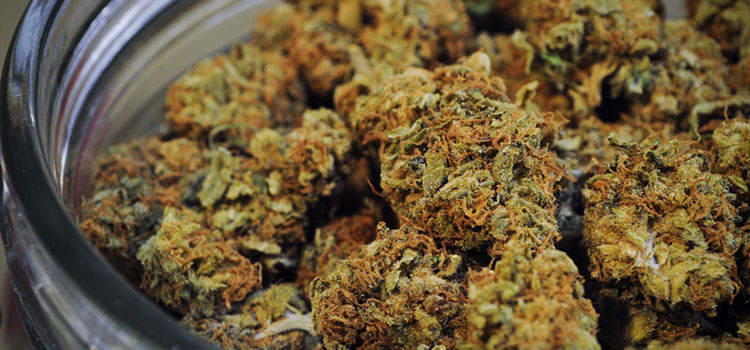
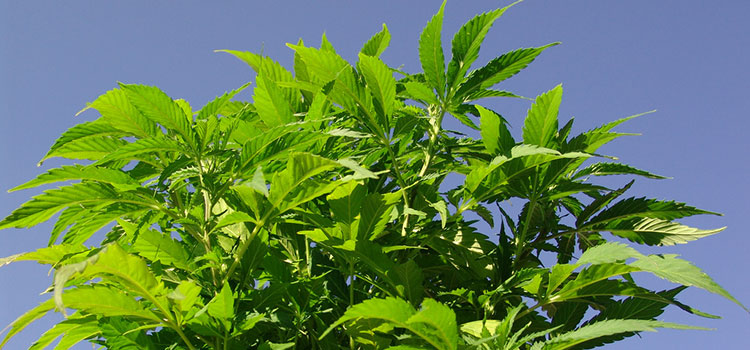



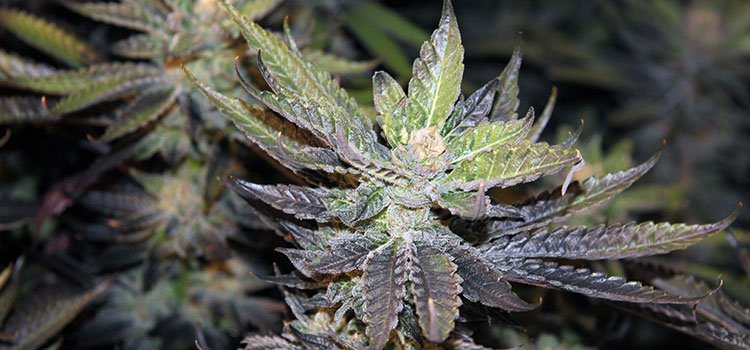

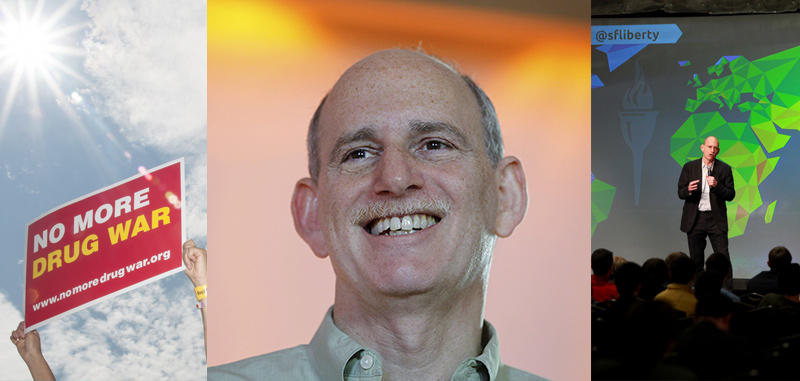
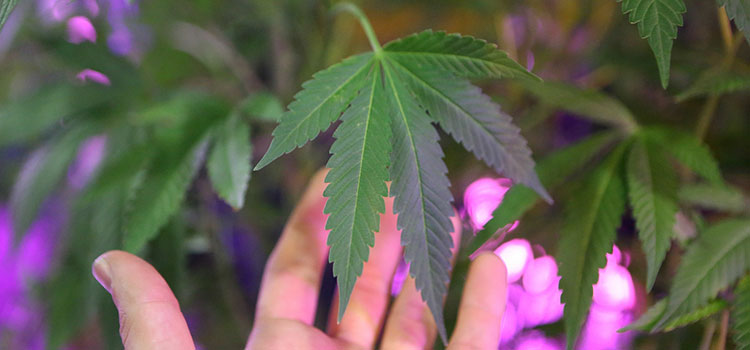

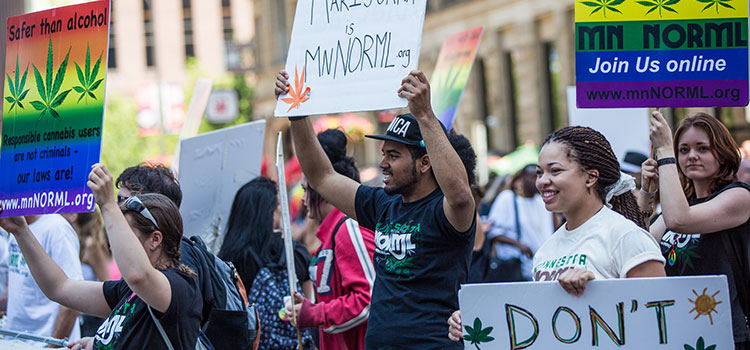
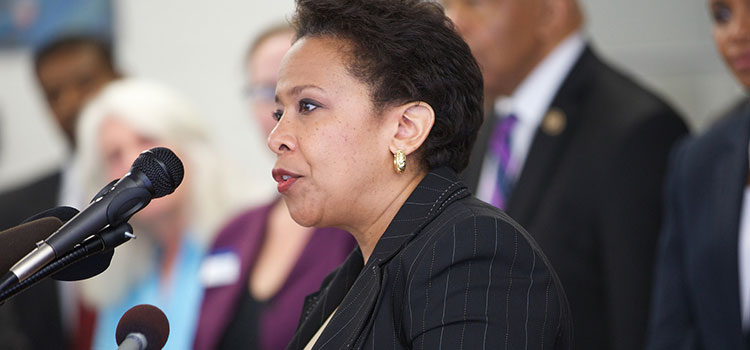
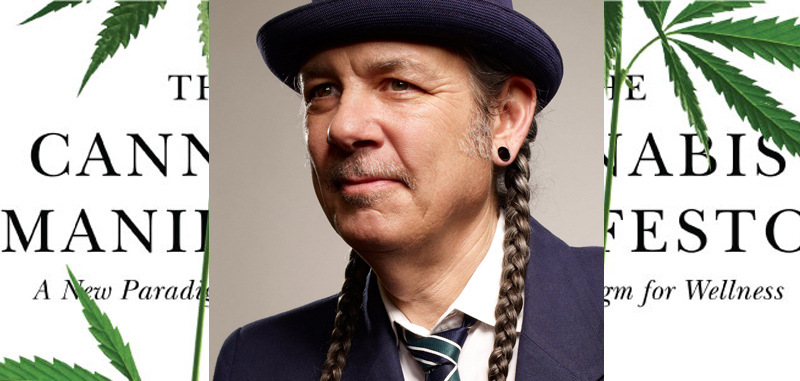

 Melissa Etheridge
Melissa Etheridge George Zimmer
George Zimmer Ethan Nadellman
Ethan Nadellman

